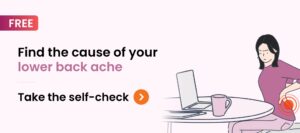Treatment for vitamin D requires a combination of diet, supplements, and exposure to sunlight.
Diet for vitamin D deficiency
Following are some Indian foods rich in vitamin D.
(1) Mushrooms:
It is one of the rich sources of vitamin D. If you have a vitamin D deficiency, you can consume this four times a week.
Mushrooms are also a rich source of fiber, protein, antioxidants, and selenium. It’s also good for people with diabetes, Alzheimer’s, cancer, and heart diseases.
(2) Ricotta cheese:
Ricotta cheese when eaten in moderation can be good for your health. It has a rich source of calcium and provides 25 IU of the vitamin D.
(3) Fish:
Fatty fish such as salmon, mackerel, and tuna are rich sources of vitamin D. Fatty fish is also a good source of omega 3 fatty acids which help lower blood pressure, reduce triglycerides, slow the development of plaques in arteries, and reduce the likelihood of heart attacks and strokes.
(4) Egg:
One egg contains 37 IU of vitamin D. In addition, eggs are also highly nutritious. They are a rich source of proteins, vitamins, and minerals.
(5) Soy milk:
Soy milk is plant-based milk that’s produced by soaking, drying, and grinding soybeans in water. It has a good source of vitamin D, vitamin C, and iron.
(6) Fortified cereals:
Fortified cereals are cereals that have added vitamins and minerals in them, otherwise not present in them naturally. Therefore, when having fortified cereals, ensure that you are getting the right amount of vitamin D.
(7) Milk:
Milk is an excellent source of vitamin D. Apart from vitamin D, they’re also rich in proteins, fats, and carbohydrates.
(8) Butter:
Dietitians recommend butter for strong bones. Butter contains vitamin D and calcium required for strong bones. Apart from these, butter also contains vitamin E which plays a role in your skin health.
(9) Other food items:
Some other foods rich in vitamin D are
- Avocado
- Broccoli
- Kiwi
- Peanuts
- Walnuts.
Sunlight
An excellent way to increase vitamin D levels in your body is by stepping out in the sun. Your skin synthesizes vitamin D when it’s exposed to UV B rays. In fact, doctors say it’s the best way to naturally improve your vitamin D levels.
When is the intensity of UV B at its peak?
At noon, the intensity of UV B rays from the sun is at its highest, meaning you need to spend very less time in the sun to synthesize vitamin D. But you could also injure yourself from heat and sunburns. Therefore doctors recommend getting 20 to 30 minutes of sunlight every day between 10 am to 1 pm for maximal absorption. But sometimes it may be difficult to get sunlight every day due to work or other family commitments. If that’s the case, we recommend taking short D – Breaks between 10 am to 1 pm, i.e., a short 15-minute break in between your busy schedule or office hours, just like you’d take a tea break. This will help improve your vitamin D levels in the longer run.
Vitamin D supplements
Another way to meet your daily requirement for vitamin D is by taking vitamin D supplements. You can take this in the form of
- Multivitamin tablets
- Vitamin D tablets or capsules
- Injections
- Cod liver oil capsules

What to look for in vitamin D supplements?
When taking supplements look at the labels for the following:
- Vitamin D2
- Vitamin D3
- Expiry date
Who should take vitamin D supplements?
Doctors recommend vitamin D supplements for the following group of people:
- People who don’t get enough sun
- Senior citizens above 65 years
- Obese people
- Dark-skinned people
- Nursing infants drinking breast milk
- People diagnosed with osteoporosis
How much vitamin D do you need?
A person’s daily dose of vitamin D depends on their age and underlying health conditions. Here are some guidelines to consider.
| Age |
Daily requirement of vitamin D |
| 0 – 12 months |
400 IU |
| 1 – 18 years |
600 IU |
| 19 – 70 years |
600 IU |
| Above 70 years |
800 IU |
Caution: Do not self-medicate. Doing so may cause vitamin D toxicity which can be injurious to your health. Always consult your doctor before taking any vitamin D supplement.
Consult a doctor now!